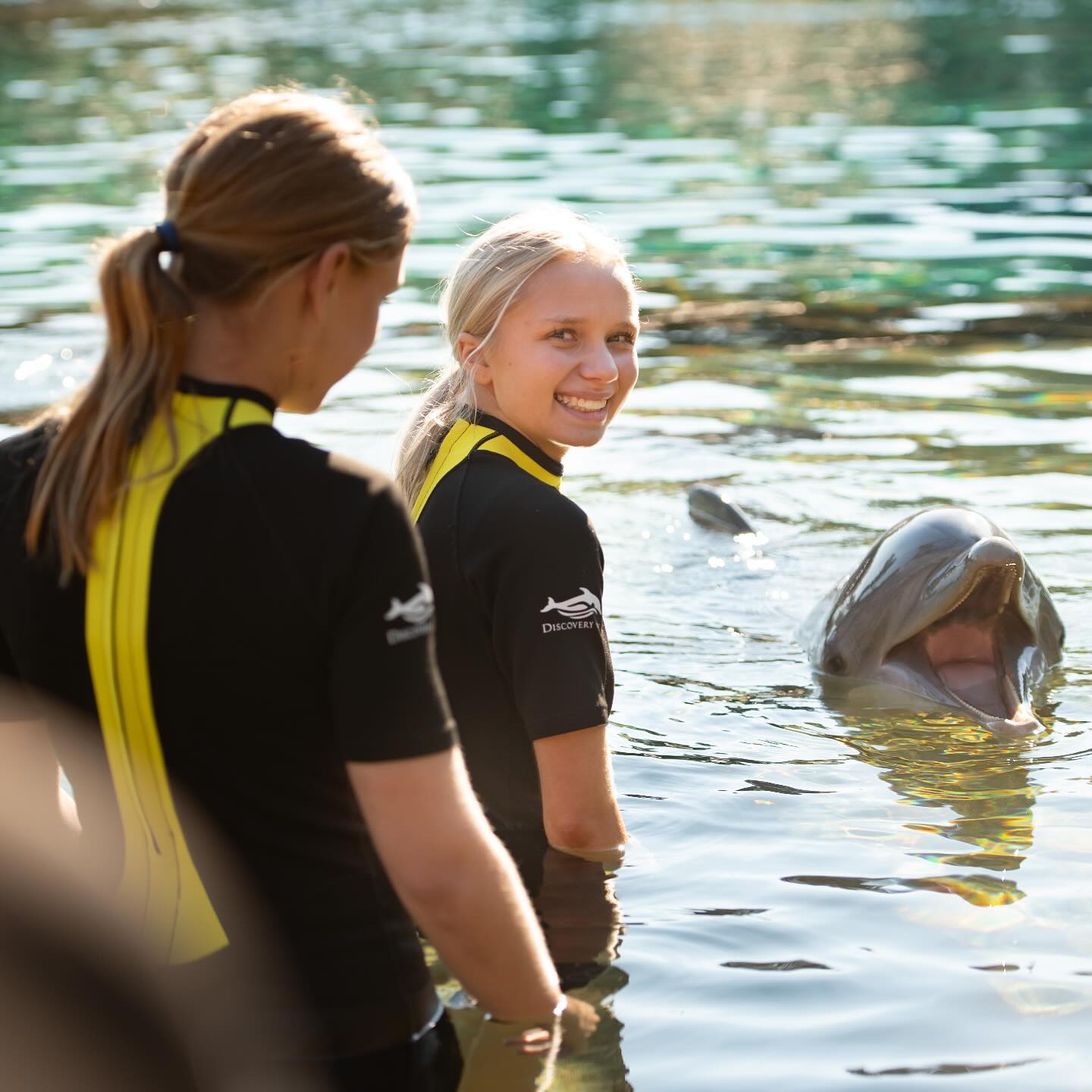- Understanding National Dolphin Day and its Importance
- Interactive Animal Experiences: In-Water Dolphin Interactions and Encounters
- The Biological and Ecological Significance of Dolphins
- Conservation Efforts for Dolphins and Their Habitats
- Ethical Considerations in Animal Tourism
National Dolphin Day invites us to reflect on the intricate connection between humans and dolphins. Dolphins have captivated human imagination for centuries with their intelligence and playful behavior. On April 13, celebrate these marine mammals with special discounts on in-water interactions and dolphin encounters. This day isn’t just a marketing opportunity but a moment to recognize the value dolphins hold in marine ecosystems and the necessity of their preservation.
National Dolphin Day is more than a date on the calendar. It is a symbol of awareness for these fascinating creatures and the ecological roles they play in marine environments. Dolphins are often seen as ambassadors of the seas because of their charismatic nature and intelligence. This day pushes the public to consider conservation efforts and the importance of sustainable interaction with wildlife. Engaging with dolphins through educational programs and corresponding events raises awareness about marine conservation and inspires future generations to value and protect aquatic habitats.
The offerings of In-Water Dolphin Interactions and Dolphin Encounters present invaluable educational experiences. These interactions allow visitors to learn about dolphin behavior, intelligence, and communication firsthand in a controlled environment. Encounter programs provide the opportunity to engage with dolphins under the guidance of trained professionals, offering insights into their behavior and social structures. This kind of learning experience differs drastically from passive observation, engendering a deeper appreciation for marine life and the conservation issues dolphins face.
Educational attractions that allow visitors direct interaction with dolphins serve as pivotal teaching tools in zoological parks. These experiences offer an immersive method to understand the complexity of dolphin interactions and communication. Programs like dolphin encounters usually involve structured sessions where trained marine biologists illustrate dolphin behaviors, skills, and the science behind their remarkable auditory and social communication abilities. The opportunity to interact with dolphins helps demystify marine life, providing tangible connections that leave lasting impressions on participants. This direct engagement emphasizes playful aspects but also highlights the challenges dolphins face in the wild, such as pollution and habitat loss.
Dolphins are vital to marine ecosystems. Known for their acrobatic displays and intelligence, they possess complex social structures and advanced communication skills. Dolphins use a sophisticated system of clicks and whistles to communicate and navigate their environment. This intelligence rivals that of great apes and demonstrates cognitive skills that humans are only starting to comprehend.
Ecologically, dolphins are a keystone species. As apex predators, they play a critical role in maintaining the balance of marine life by regulating the population of fish and squid, which are crucial for maintaining biodiversity in marine environments. By studying dolphins and their interactions within their habitats, scientists gain insights into ocean health and the challenges posed by human activities.
Conservation efforts play an essential role in preserving dolphins and their natural habitats. Human activities have increasingly threatened marine ecosystems, making dolphin conservation a critical focus for marine biologists. Pollution, overfishing, and climate change adversely affect these animals, diminishing food sources and damaging their habitats. Organizations worldwide are focusing on creating protected areas and implementing policies to minimize the impact of human activity on dolphins.
Successful conservation strategies include the establishment of marine protected areas where dolphins can thrive without the threat of human interference. Public awareness campaigns and educational programs, like those offered on National Dolphin Day, educate on the potential threats dolphins face and the actions needed to protect them. Legal protections and international agreements also help safeguard dolphin populations, highlighting the global responsibility in conserving these vital marine mammals.
Ethical considerations are paramount in wildlife interactions and tourism. While interactive experiences with dolphins can foster public appreciation and support for conservation efforts, the welfare of the animals must never be compromised. Zoos and marine parks must adhere to strict standards to ensure the ethical treatment of dolphins. This includes providing environments that simulate their natural habitats, offering proper enrichment, and ensuring their mental and physical well-being.
Animal interaction experiences must balance educational value with the ethical treatment of wildlife. Conservation and education should be core to these programs, promoting genuine understanding and empathy towards wildlife. Implementing stringent regulations on dolphin care, regularly evaluating interaction programs, and advocating for ethical engagement ensures these activities contribute positively to wildlife appreciation and conservation efforts.
National Dolphin Day is a celebration and a call to action. It encourages greater awareness and activism in marine conservation and animal welfare. Through strategic public engagement, interactive animal encounters, and robust conservation strategies, we celebrate the role dolphins play in maintaining marine biodiversity and their contribution to human culture and education. This day is an opportunity to reflect on the impact of our actions and commit to protecting these enchanting creatures for future generations.
*****
Source Description
We’re making waves a little early! In celebration of National Dolphin Day next week, we’re offering special discounts on Sunday, April 13:
✨ Buy One, Get One 50% off In-Water Dolphin Interactions
🐬 Buy One, Get One 50% off Dolphin Encounter
These offers are only available in-park on April 13—come join us and kick off the celebrations early with your bottlenose friends!


